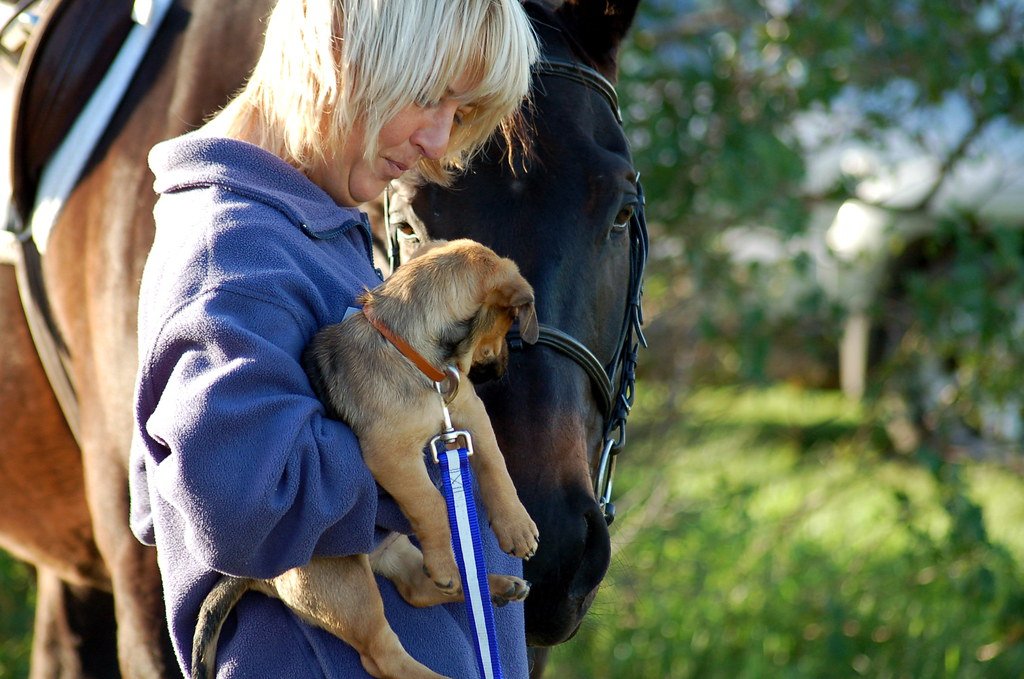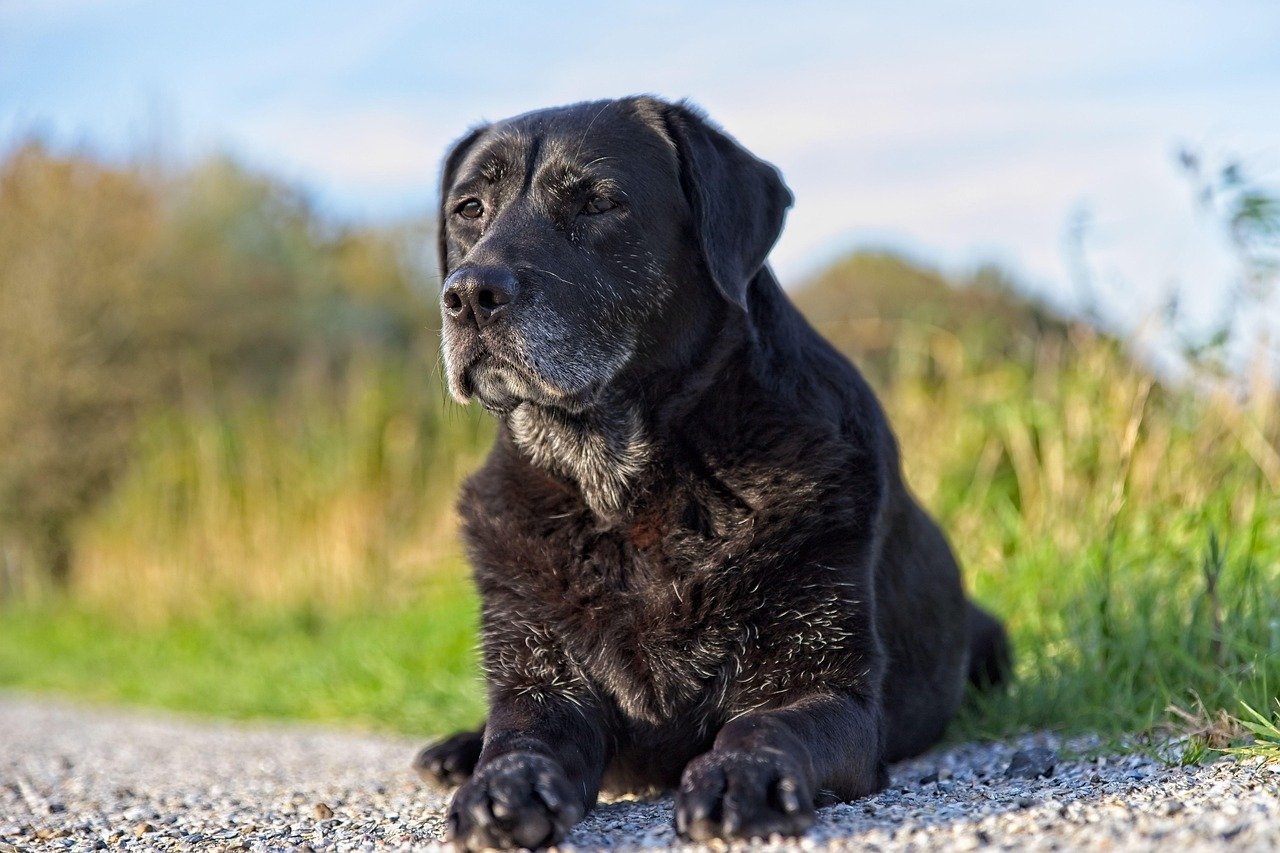Puppies are undeniably adorable, but they’re also a full-time job—and that can be a lot for many seniors. Between the constant training, high energy, and need for round-the-clock attention, raising a young dog can be physically and emotionally demanding. That’s why I believe senior dogs or calm, adult rescues are often a much better fit. They’re usually house-trained, more mellow, and just as loving—without the chaos of puppyhood. Plus, adopting a senior dog can be incredibly rewarding for both human and pup. It’s about finding a companion that fits your lifestyle, not one that overwhelms it. A gentle, low-maintenance dog can bring comfort, joy, and meaningful companionship without all the stress.
It’s Not About Age—It’s About Lifestyle
Let’s be honest: puppies are adorable, wriggly bundles of energy that can steal anyone’s heart in seconds. But bringing one home isn’t like getting a new plant or a goldfish. Puppies are a whirlwind of needs, chaos, and constant supervision. It’s not about how old you are, but about what your daily life looks like. Are you comfortable getting up every two hours during the night for potty breaks? Do you feel up for chasing a zooming furball around the house, day in and day out? These aren’t small tasks, and for many seniors—especially those enjoying a slower, more relaxed pace—a puppy’s endless demands might feel more like a burden than a joy. I’ve seen plenty of folks light up at the thought of a new puppy, only to feel overwhelmed once reality sets in.
The Realities of Raising a Puppy
Puppies are basically toddlers who chew, nip, and have no clue about boundaries. They require patience, quick reflexes, and a lot of bending, kneeling, and sometimes running. There’s house training, socialization, obedience, and more. If you’re managing arthritis, mobility issues, or just value a tidy home and good sleep, that sweet puppy energy can quickly turn into a recipe for stress. I remember my aunt—an energetic woman in her seventies—who took in a Labrador puppy. Within a month, she was exhausted, her back ached, and her carpets were…well, let’s just say they didn’t survive. It’s not that she wasn’t capable, but the effort needed was more than she bargained for.
Health Considerations: For You and the Puppy

It’s easy to overlook the physical toll a young dog can take. Puppies don’t understand “take it easy,” and their unpredictable nature can lead to slips, trips, or even falls—especially if you use a cane or walker. There’s also the matter of vaccines, worming, and regular vet visits, all of which require shuttling them around and sometimes physically restraining a squirming pup. On the flip side, puppies can become anxious or unruly if their humans can’t engage them enough, leading to behavioral issues down the line. I’ve seen dogs surrendered to shelters because the match wasn’t right. It’s heartbreaking for everyone involved.
The Financial Factor: Counting the Cost

Raising a puppy isn’t just about time and energy—it’s also a financial commitment. Between initial vaccinations, spaying or neutering, training classes, food, toys (which they’ll destroy and need replacing!), and unexpected vet bills, the costs add up quickly. For seniors on fixed incomes, those surprise expenses can be a real source of stress. I always recommend folks sit down and do the math before bringing a puppy home. It’s better to be prepared than to feel blindsided later.
The Emotional Rollercoaster

Puppies can make you laugh until your sides hurt, but they can also push your patience to the edge. The guilt of not keeping up with their needs or the frustration when training doesn’t go as planned can be tough, especially if you live alone. A friend of mine once confided how isolated she felt, unable to leave her energetic puppy alone or join her friends for lunch. The joy of companionship is real, but so is the weight of responsibility. It’s important to think about what will truly make your days brighter, not just busier.
Older Dogs: The Unsung Heroes

Here’s my honest advice: if you’re longing for canine company, consider adopting a senior dog. Older dogs are often overlooked in shelters, but they have so much love left to give. They’re usually house-trained, calmer, and already know basic manners. Their exercise needs are blissfully reasonable—a few gentle walks and some cuddle time on the couch. I’ve matched dozens of seniors with older dogs, and the results are almost always heartwarming. One client, a retired teacher, told me her adopted 8-year-old beagle brought “peace, laughter, and warmth” into her quiet home.
Matching Energy Levels: Why It Matters
A good match is about more than age—it’s about energy. If your idea of a perfect afternoon is a cup of tea and a good book, a puppy that wants to play for hours probably isn’t your soulmate. But a mature dog who enjoys a leisurely stroll and a nap at your feet? That’s harmony. Dogs thrive when they’re with humans who “get” them, and vice versa. I always ask folks to be brutally honest about their routines and preferences before choosing a dog, because the right fit means less stress and more joy for both.
Behavior Cues and What to Look For
Older dogs often have more predictable behavior patterns, making it easier to spot when something’s amiss. They tend to be more settled, so changes—like loss of appetite, sudden lethargy, or changes in bathroom habits—stand out sooner. This can be a real advantage for seniors who want to keep a close eye on their pet’s health. Puppies, on the other hand, are wild cards, and it can be tough to know what’s normal puppy mischief and what’s cause for concern. Watching for subtle cues in an older dog is often easier and leads to quicker responses to health issues.
Building a Lasting Bond—Without the Hardship
The bond between a person and their dog can be one of the most rewarding relationships in life. With an older dog, that connection often forms quickly—they seem to know they’ve been given a second chance. I’ve seen shy, withdrawn seniors blossom with the gentle companionship of a calm, loving dog. It’s not about missing out on puppy love; it’s about finding the right love, one that fits seamlessly into your days and leaves you both better for it.
Support Systems: You Don’t Have to Do It Alone
No matter what age dog you choose, having a support system is key. Ask friends, family, or neighbors if they’re willing to help with walks or vet visits. Some communities even have volunteer groups or pet care services specifically for seniors. And don’t forget your vet—they’re your partner in keeping your dog healthy and happy. With the right support, owning a dog at any age can be a joy, but going in with open eyes and realistic expectations makes all the difference.
At the end of the day, it’s all about making a choice that brings joy—not stress. Puppies are a handful, and while they’re cute, they can be a lot for seniors to handle. Choosing an older or more relaxed dog can offer just as much love, without the constant hustle of training and high energy. It’s not about age—it’s about the right fit for a happy, healthy companionship.

Esther is from India; the heartbeat of South Asia, holding a Master’s degree in Zoology and a postgraduate diploma in Animal Welfare. Her enthusiasm for animal welfare drives her passion and dedication to working for animals, ensuring their well-being, and advocating for their rights. With a solid academic background and hands-on experience, she is committed to making a positive impact in the field of animal welfare. In her free time, she enjoys embroidery and sewing. As a Chennaite from Tamil Nadu, Esther loves Bharathanatyam, an Indian classical dance form.






